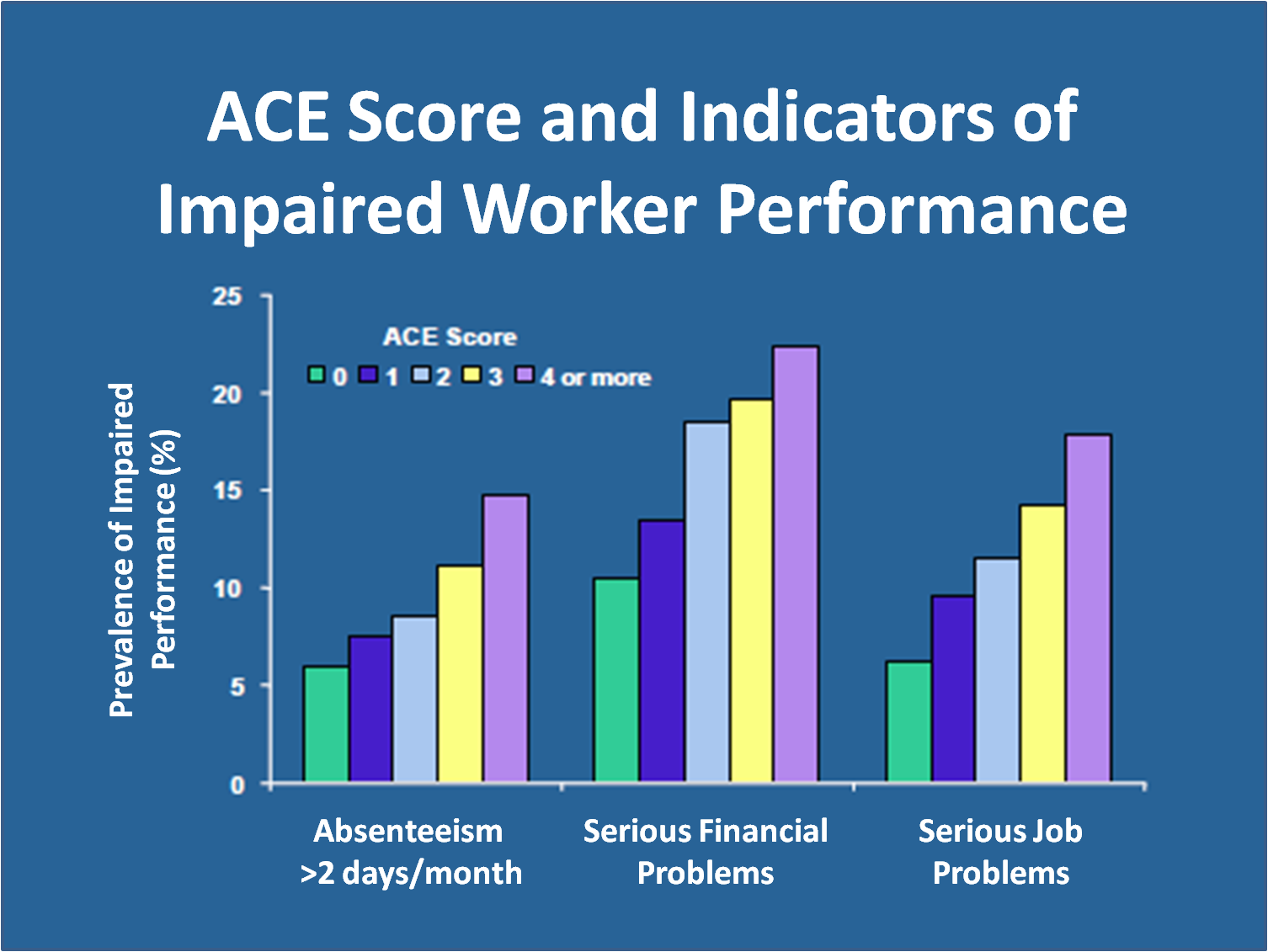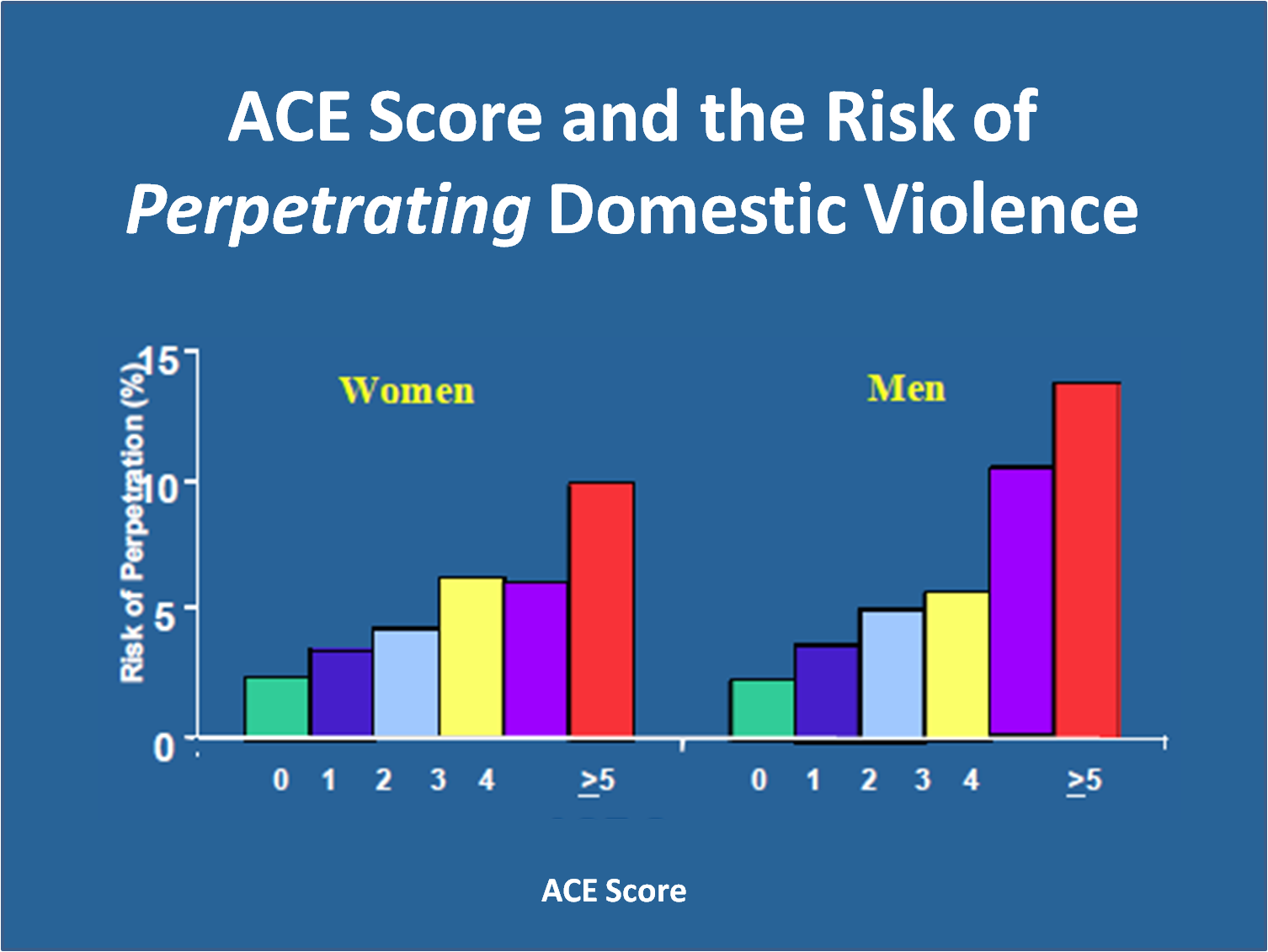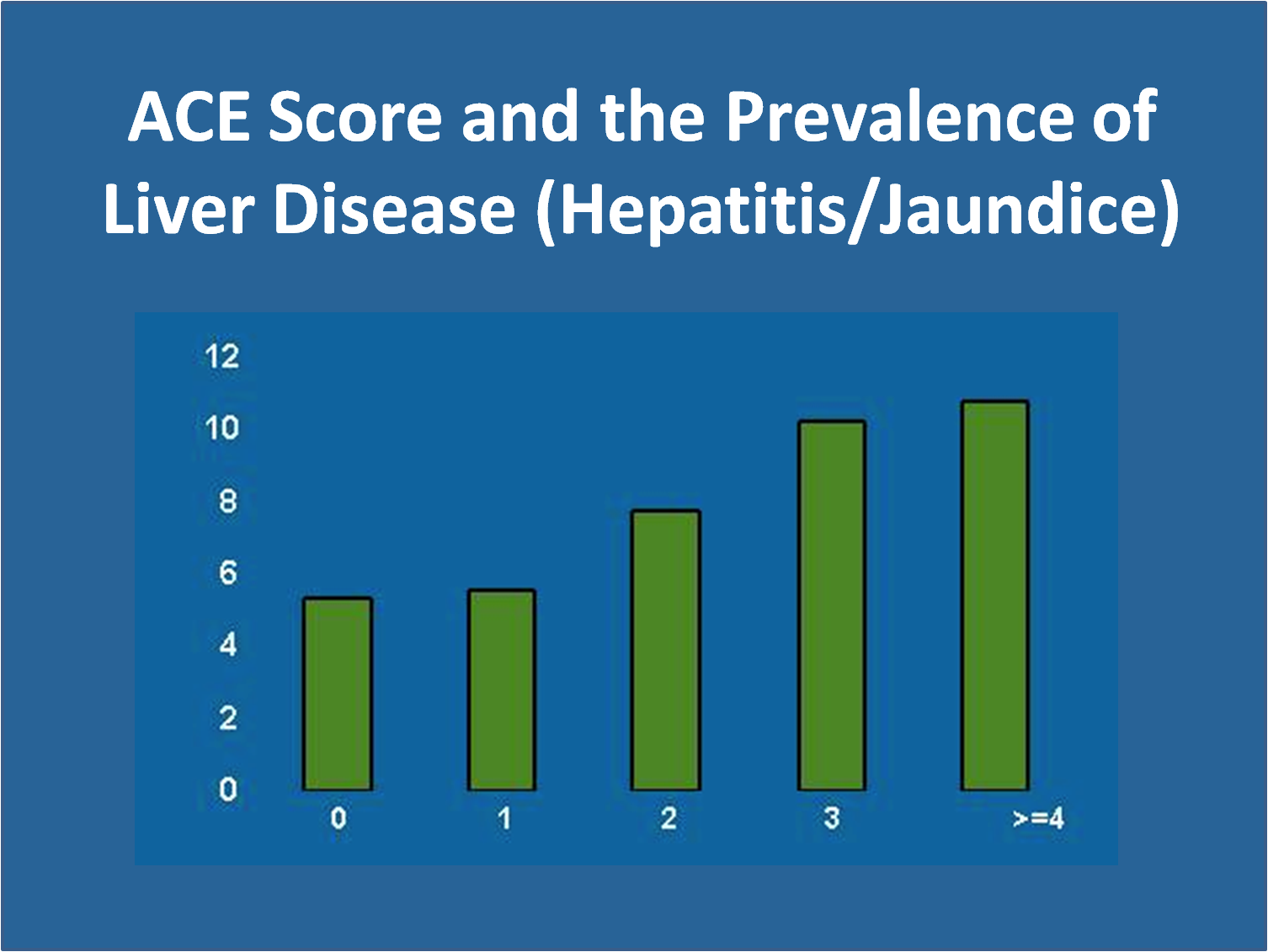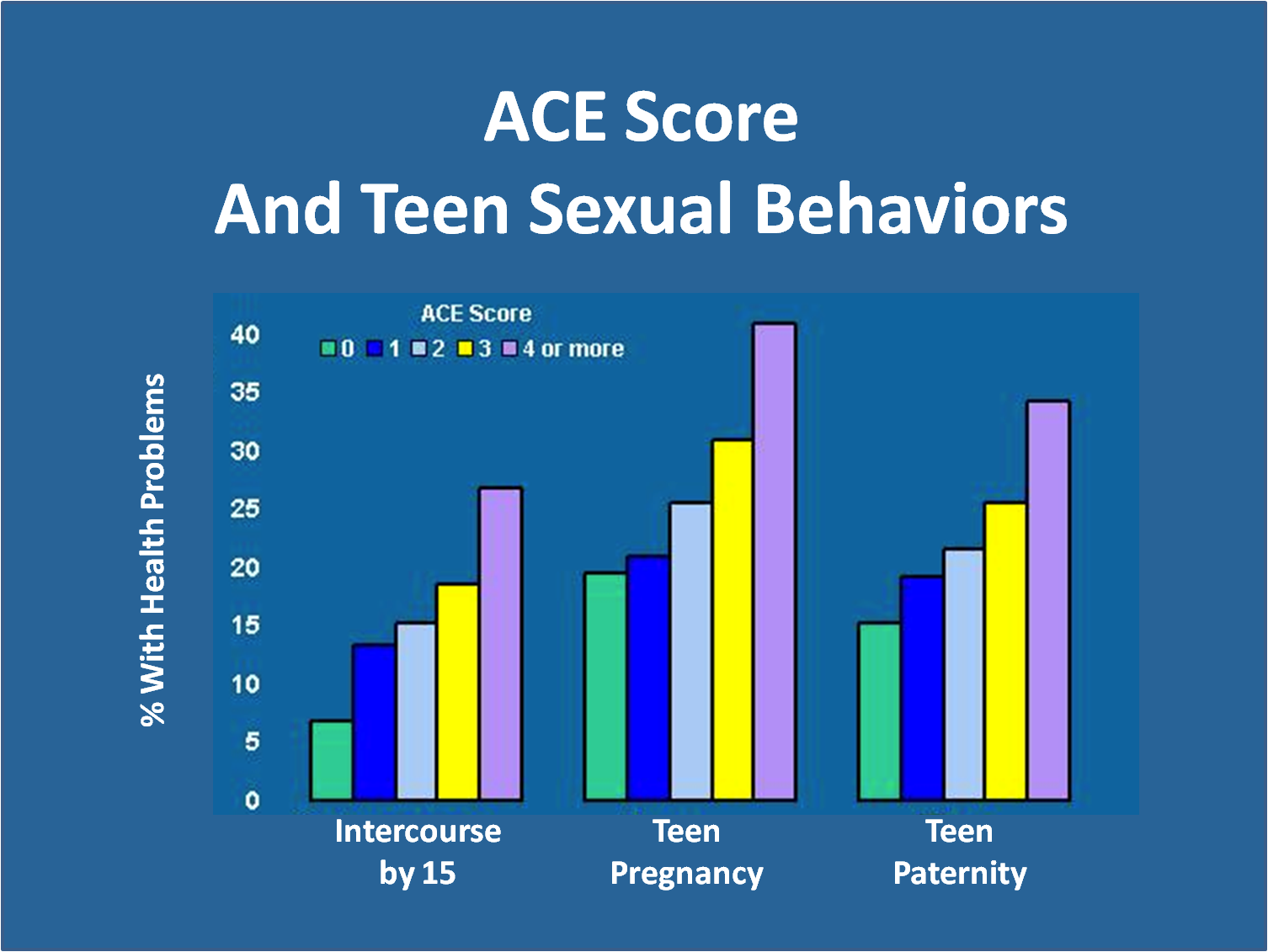
The Adverse Childhood Experiences (ACE) Study is one of the largest investigations ever conducted to assess associations between childhood maltreatment and later-life health and well-being.
The findings suggest that certain childhood experiences are major risk factors for the leading causes of illness and death as well as poor quality of life in the United States.
It is becoming alarmingly clear that both physiological and psychological health and disease, whether we thrive or remain stuck in life and even our search for purpose, meaning, and spiritual quests, has more to do with our early childhood environment (including intergenerational toxic stress) and its effects on the brain than anyone could imagine.
The study’s researchers came up with an ACE Score to explain a person’s risk for chronic diseases.
There has also been an important groundbreaking film created about ACEs, called, “Resilience: The Biology of Stress and the Science of Hope.”
2:10 minutes
The exciting news is that finally, after all these years, the impact of Adverse Childhood Experiences on health and disease is making its way into our collective consciousness and is starting to generate the interest and attention that it deserves.
We find all of this extremely encouraging! We intend to continue doing our part to bring awareness to this critical piece of the healing puzzle and advocate for the inclusion of addressing and healing Adverse Childhood Experiences, Stress and Trauma in all of our healing practices.
~ Jim
The study is an ongoing collaboration between the Centers for Disease Control and Prevention (CDC) and the Kaiser Permanente’s Health Appraisal Clinic in San Diego.

How Can Unified Therapy™ Help?
 Unified Therapy™ can help unlock these traumatic and stressful experiences out of the body, brain, and nervous system where most of these experiences are stored and buried.
Unified Therapy™ can help unlock these traumatic and stressful experiences out of the body, brain, and nervous system where most of these experiences are stored and buried.
Rather than using biochemical solutions or engaging in patterns of high-risk behavior to temporarily escape problems, we all have an amazing built-in, biological healing reflex that once engaged, has the potential to take stress and trauma out of the body and promote healing of many health conditions such as trauma, anxiety, and chronic pain syndromes. See it in action here.
Amazingly, the systemic changes that are experienced on the inside can also be documented on the outside on film and internally measured with scientific equipment as well.
To view examples of this, visit our Client Sessions page.
Please take a moment to check out your ACE Score to see if you could be susceptible to these conditions.
Trauma, Brain, and Relationship: Helping Children Heal
25:01 minutes
A powerful documentary featuring Bryan Post, Bruce Perry, MD, Daniel Siegel, MD, Marti Glenn, PhD, and other renowned experts in the field of childhood trauma, attachment, and bonding.
This is a great way to share this new understanding of how trauma effects the development of the mind~body system and how it affects children’s behaviors and social relationships.
Originally produced by Santa Barbara Graduate Institute.
Read more about Silent ACEs by Niki Gratrix
Dr. Jeffrey Brenner: “I believe ACE scores should become a vital sign, as important as height, weight, and blood pressure.”
3:20 minutes
Dr Jeffrey Brenner is founder and executive director of the Camden Coalition of Healthcare Providers, and a 2013 MacArthur Foundation genius award winner.
He did groundbreaking work in Camden, N.J., by using data to identify people who were hospital emergency room “frequent fliers”.
He found that between their trips to the ER, little or nothing was done to help them improve their health.
This video looks at the relationship between ACEs and hospital emergency rooms.
Healing Emotional Trauma – Part 1: How Does Our Childhood Biography Become Our Biology?
~ Niki Gratrix
http://www.nikigratrix.com
People who experienced trauma in childhood have an increased risk of 7 out of 10 of the top ten causes of death and a 20-year reduction in lifespan. How does emotional trauma and early life stress change our biology over a lifetime? It turns out that emotional trauma has an effect on three major areas: our behaviour, biochemistry, and our beliefs, all of which lead to diseases and health conditions in later life. Read More
Childhood Disrupted
A groundbreaking book showing the link between Adverse Childhood Experiences (ACEs) and adult illnesses such as heart disease, autoimmune disease, and cancer – Childhood Disrupted also explains how to cope with these emotional traumas and even heal from them.
Your biography becomes your biology. The emotional trauma we suffer as children not only shapes our emotional lives as adults, it also affects our physical health, longevity, and overall wellbeing. Scientists now know on a bio-chemical level exactly how parents’ chronic fights, divorce, death in the family, being bullied or hazed, and growing up with a hypercritical, alcoholic, or mentally ill parent can leave permanent, physical “fingerprints” on our brains.
Can Family Secrets Make You Sick?
~ By Laura Starecheski, NPR News
All Things Considered, March 2, 2015
Few doctors – and few patients – realize how profoundly early abuse, neglect, and other childhood traumas can damage an adult’s physical health.
In the 1980s, Dr Vincent Felitti, now director of the California Institute of Preventive Medicine in San Diego, discovered something potentially revolutionary about the ripple effects of child sexual abuse. He discovered it while trying to solve a very different health problem: helping severely obese people lose weight.
Infant Stress Linked to Teen Brain Changes
 Body & Brain Science News
Body & Brain Science News
~ Laura Sanders
The effects of a baby’s rough start can linger. An early stressful environment during a baby girl’s first year was associated with altered brain behavior and signs of anxiety in her late teens, scientists report online November 11 in Nature Neuroscience.
Although the results are preliminary, they may help reveal how negative experiences early on can sculpt the brain. Read more
How Trauma Affects a Child’s Brain
May 25, 2012 By Ruth Buczynski, PhD
President, NICABM
We know that trauma affects the brain at any age, but when a child endures trauma, the result is profoundly tragic – it sets in motion a pattern of changes in the brain that can be devastating in adult life.
Let’s take a look at the four ways early life trauma can affect the brain.
Here are some specific examples of how increasing ACE scores increase the risk of some diseases, social and emotional problems.
The graphs are from The Hidden Epidemic: The Impact of Early Life Trauma on Health and Disease
by Drs Vincent Felitti and Robert Anda, co-founders of the ACE Study.
Resources
~ CDC – Adverse Childhood Experiences (ACE) Study
~ Preventing Adverse Childhood Experiences
~ ACE Score Affects the Physical Mind and Body by Don Shetterly
 The ACE Study (Adverse Childhood Experiences) findings suggest that certain childhood experiences are major risk factors for the leading causes of illness and death as well as poor quality of life in the United States.
The ACE Study (Adverse Childhood Experiences) findings suggest that certain childhood experiences are major risk factors for the leading causes of illness and death as well as poor quality of life in the United States.

 The ACE Study uses the ACE Score which is used to assess the total amount of stress during childhood and has demonstrated that as your ACE Score increases, so does the risk of disease, social and emotional problems.
The ACE Study uses the ACE Score which is used to assess the total amount of stress during childhood and has demonstrated that as your ACE Score increases, so does the risk of disease, social and emotional problems.
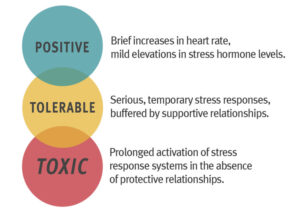 It’s important to distinguish among three kinds of responses to stress: positive, tolerable, and toxic. As described below, these three terms refer to the stress response systems’ effects on the body, not to the stressful event or experience itself:
It’s important to distinguish among three kinds of responses to stress: positive, tolerable, and toxic. As described below, these three terms refer to the stress response systems’ effects on the body, not to the stressful event or experience itself:
